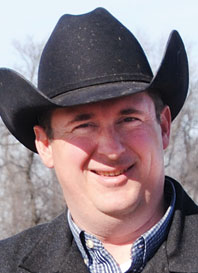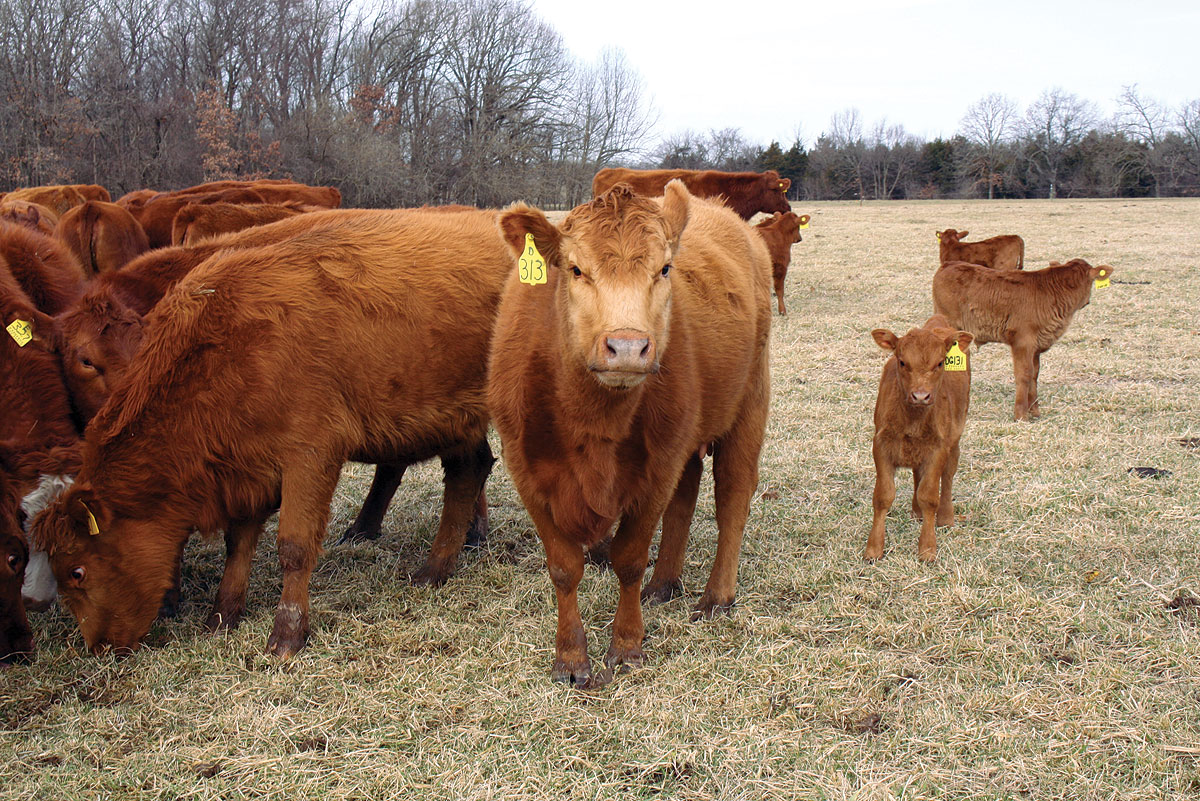
“The best way to predict your future is to create it.” Many people have heard this famous quote but how many people actually live by the words? Jason Bates, general manger of Vaughn Family Farms manages the Beefmaster herd by this philosophy.
“It’s true,” said Jason in regards to the quote. “It’s how we think around here. A cow has to prove herself, if she doesn’t then we try something different.”
It all started in 1995 when Davin and Gail Vaughn established Vaughn Family Farms outside Mount Vernon, Mo. Davin and Gail live on the farm with their two children, Kelly and Lauren. Over the years Davin has become very involved and dedicated to the breed. Davin is on the Beefmaster Breeders United Board of Directors, president of Beefmaster Educational Endowment Foundation and president of Central States Beefmaster Breeders Association.
The Vaughns aspired to develop and produce high-quality replacement beef females and high-performing bulls. They selected Beefmaster cattle based on their resistance to heat and drought, improved docility, fescue tolerance, maternal attributes as well as high pre and post weaning gain.
“We are currently introducing Angus genetics into the herd to develop a registered Beefmaster Advancer. There are two main reasons for this,” Jason explained. “One, cattle are more accepted in this part of the country if they show less of the Bos indicus influence. Two, we are able to influx new genetics with added carcass value and then breed up. After three generations the cows are registered Beefmaster. Gene pools aren’t getting any bigger, this allows us to introduce new genetics using proven, predictable, high-quality Angus and Red Angus genetics.”
This composite breed offers a level of hybrid vigor that is hard to match. Jason continued, “This cross is uniquely and ideally suited for this country. We are able to capture the maternal attributes from the Beefmaster and improve carcass merit from the Angus genetics, and because of the cross we are able to obtain a high level of retained heterosis.
“Heterosis is the only ‘free lunch’ in the cattle business,” Jason reasoned. “It’s the only time 2+2=5. Because of the high level of heterosis we are able to wean off heavier calves. It’s free pounds.”
Other qualities that make the Beefmaster suited for this part of the country are their heat tolerance and parasite resistance. “Bos indicus cattle have a higher tolerance for hot fescue, their temperature doesn’t rise as much as straight English or Continental cattle,” said Jason.
To develop their Advancer herd Vaughn Family Farms utilizes embryo transfers and artificial insemination.
“Flushing our best cows is the fastest way to increase genetic merit. We have to experiment and learn from real world experiences so we can find what works,” explained Jason.
Vaughn Family Farms puts embryos in a large percentage of their registered and commercial cows. Jason said, “Using registered cows and high-quality bulls for clean up we are still able to get a marketable, registered calf if the embryo doesn’t take.”
He continued, “We are very hard on our cows and we are very selective when we choose what cows we are going to use as donors. We merchandise our cattle based on performance, they have to meet our criteria or they’re gone.”
In order to know which animals meet their criteria, Vaughn Family Farms turns to data. “We ultrasound all our calves at yearling. It is important to record the good data as well as the data on our cull animals. This gives us a more complete measurement of contemporary groups, so we know how to continue improving. These ratios have a major impact on EPDs, more than anything else, and improve accuracies,” explained Jason.
The objective at Vaughn Family Farms is to produce bulls that will excel in the commercial cattle industry. They develop their bulls at Rose Bud Feeders in Arkansas, where they are performance tested in the spring and graze on grass throughout the summer. “Our goal is to market 150 bulls a year during the Central States Beefmaster Breeders Association Performance Bull Test and Sale the first week in November.”
Productivity is key not only when examining genetics but also in the way the cattle are managed. “We want to become as efficient as we can without sacrificing quality,” concluded Jason. “We invest a great deal of money into our genetics and development and we stand behind our products.”







